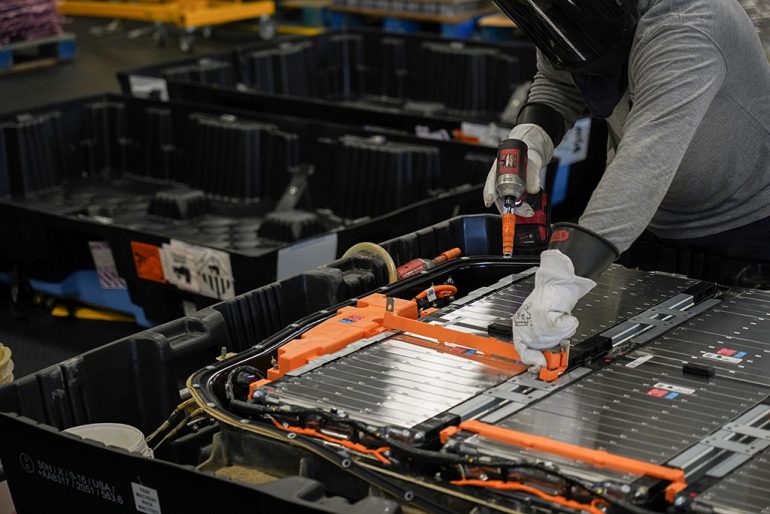
Toyota has taken a big step towards bolstering its commitment to sustainability and carbon neutrality by expanding its battery recycling network through a collaboration with Cirba Solutions. Cirba Solutions, a premier battery recycling materials and management company, will play a crucial role in Toyota’s mission to establish a closed-loop battery ecosystem, particularly focused on supporting the burgeoning electric vehicle (EV) market.
The collaboration encompasses various facets of battery life cycle management, including collection, storage, testing, and processing of end-of-life electrified vehicle batteries, spanning hybrid (HEV), plug-in hybrid (PHEV), and battery electric vehicles (BEV). This initiative aligns with Toyota’s broader objective of creating a sustainable closed-loop ecosystem for automotive batteries.
Also, don’t forget that you can get discounted new car pricing with a free quote through qualified local dealer partners.
Christopher Yang, Group Vice President of Business Development at Toyota Motor North America, highlighted the strategic significance of partnering with Cirba Solutions. The collaboration leverages Cirba Solutions’ extensive transportation and recycling network, ensuring nationwide coverage for battery collection and recycling. This move is expected to significantly reduce both operational costs and the carbon footprint associated with these processes.
Cirba Solutions, recognized as one of the largest battery recycling companies in North America, brings to the table its coast-to-coast collection and recycling network. The focus of the collaboration will be on the Midwest and East Coast regions, with Cirba Solutions’ Lancaster, Ohio facility serving as a key processing center. This facility, bolstered by an $82+ million Department of Energy grant, will utilize advanced technology to achieve an impressive up to 95 percent recovery rate of critical minerals from scrap and end-of-life batteries. These recovered battery-grade metals will then be reintegrated into the supply chain, contributing to a more sustainable and circular approach to battery production.
Jay Wago, Chief Commercial Officer at Cirba Solutions, emphasized the long-term vision of creating a sustainable closed-loop battery supply chain and expressed pride in being a partner with Toyota in this endeavor.
The collaboration is not only environmentally beneficial but also economically advantageous for Toyota. By partnering with Cirba Solutions, Toyota expects to reduce its overall end-of-life battery transportation and logistics costs by a substantial 70 percent. This reduction is achieved by optimizing the logistics network, thereby minimizing the average miles driven for collection and recycling activities.
Toyota, a global leader in electrified vehicles for over 25 years, has sold more than 6.2 million combined PHEVs and HEVs in North America since 2000. With a forecast that its end-of-life batteries will likely double by 2030, the collaboration with Cirba Solutions positions Toyota as a forward-thinking player, actively addressing the challenges associated with the increasing number of end-of-life lithium-ion batteries.
In addition to its recycling efforts, Toyota is also making significant strides in battery manufacturing. The company’s new plant, Toyota Battery Manufacturing North Carolina (TBMNC), currently under construction and set to go online in 2025, represents a substantial investment of nearly $14 billion. This facility will not only contribute to the production of automotive batteries but also support job creation, with over 5,000 new jobs anticipated to be created to support vehicles assembled in North America.
Toyota’s comprehensive approach to battery management, encompassing recycling, manufacturing, and job creation, underscores its commitment to a sustainable and circular economy, contributing to the broader global efforts to mitigate the environmental impact of the automotive industry.